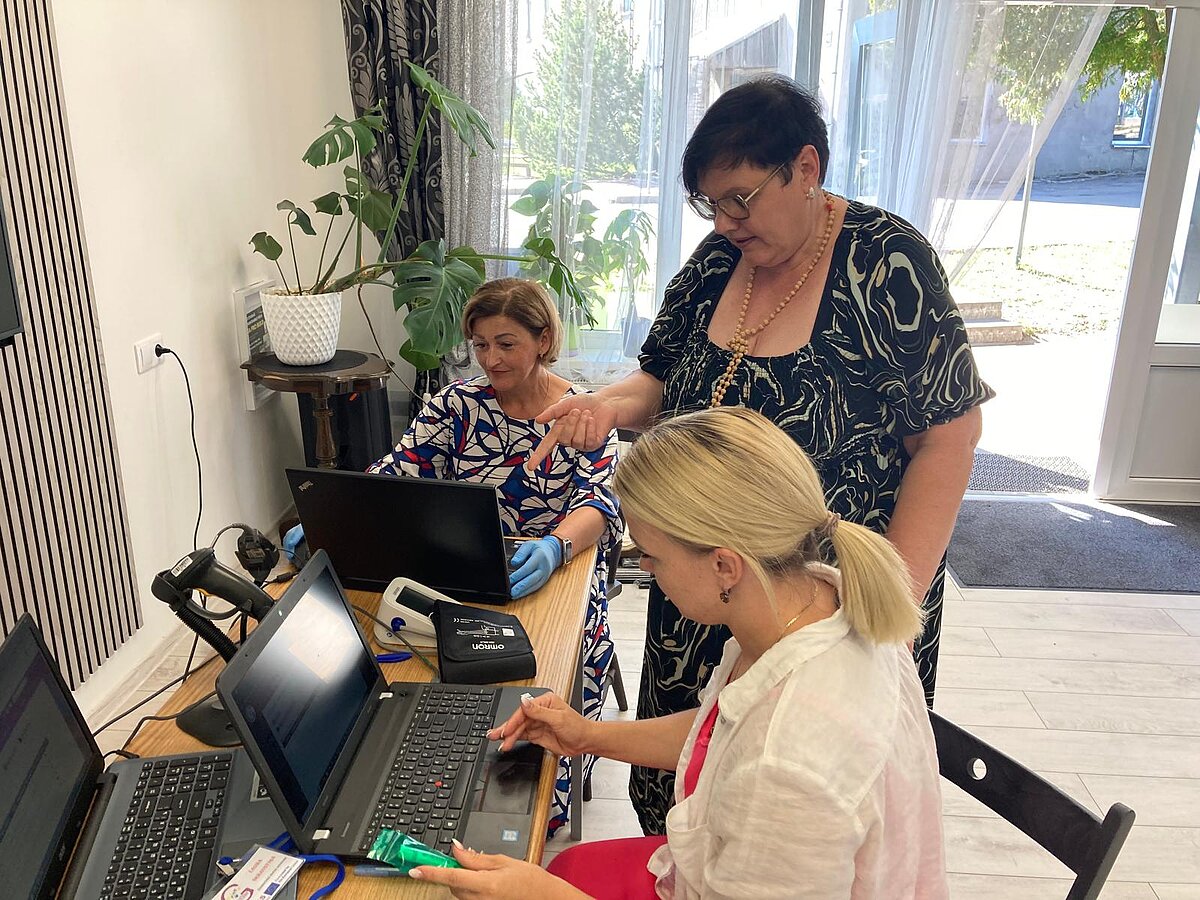
The GISTAR study is unique in Europe and has also gained international recognition. Currently, participant follow-ups are being conducted within the European Commission-supported TOGAS project.
A lecture on reducing mortality from gastric cancer and the European perspective on these issues was delivered via Microsoft Teams by the scientific lead of the GISTAR study, Professor Mārcis Leja, a gastroenterologist and director of the University of Latvia's Faculty of Medicine and Life Sciences, Institute of Clinical and Preventive Medicine (LU KPMI).
LU KPMI leading researcher Dr. sc. ing. Sergejs Paršutins introduced center staff to data entry systems, security regulations, and data storage conditions, while LU KPMI senior expert Aiga Rūdule provided information on the specific project requirements, expected results, quality control, as well as the design, goals, and objectives of the GISTAR study.
It is expected that the results obtained during the project will help experts develop guidelines, and policymakers integrate H. pylori testing and eradication strategies into healthcare priorities, thereby reducing the incidence of gastric cancer in Europe.
In Latvia, the project is implemented by the University of Latvia's Faculty of Medicine and Life Sciences, Institute of Clinical and Preventive Medicine (LU KPMI). Key partners include the National Institute of Public Health (NIJZ) in Slovenia, the International Agency for Research on Cancer of the World Health Organization (IARC/WHO) in France, the Nantes University Hospital (France), and the Dr. Adolf Drolc Community Healthcare Center in Maribor, Slovenia. The project will continue until the end of April 2025.
 CONFERENCE
CONFERENCE